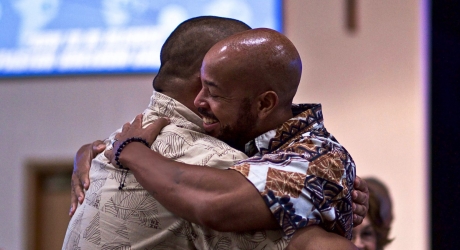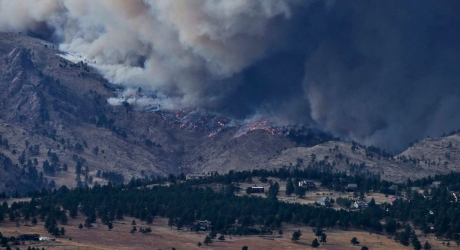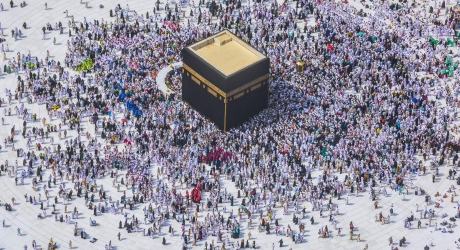The Times of India | October 11, 2025
Recently, US President Donald Trump unveiled a detailed plan for Gaza. It called for an immediate ceasefire, hostage exchanges, and a staged Israeli withdrawal, while placing Gaza under temporary international supervision with promises of large-scale humanitarian aid and economic development. Though ambitious, such frameworks often struggle because they overlook deeper moral and psychological roots. Maulana Wahiduddin Khan, in his Ten-Point peace formula offered a realistic, transformative path forward.
At the heart of this proposal is the principle of Hudaybiyyah, drawn from Prophet Muhammad’s treaty with the Meccans in seventh century. The lesson is clear: pursue peace even when it requires compromise, because it opens possibilities later. Rather than insisting that every demand be met first, the priority must be to stop bloodshed and build conditions where opportunity can flourish.
The Quran commands believers to adopt peaceful reconciliation (4:128). Violence has dominated the region for over six decades, yet it has brought neither justice nor progress. True change will come only through nonviolent engagement. The Quran also teaches that hostility can turn into friendship when evil is repelled with good (41:34). This means choosing patience, dialogue, and generosity instead of revenge.
The formula emphasises that peace must precede justice. Justice cannot thrive in an atmosphere of rage and retaliation. Peace, even if incomplete, provides the stability needed for progress through political, legal, and diplomatic means. Without peace, the call for justice remains trapped in cycles of conflict.
Another key principle is to remain result oriented rather than emotional. The Prophet described a true believer as one who abandons actions that bring no benefit. Decades of violent resistance have yielded little. It is now essential to focus on practical methods that deliver real improvement rather than symbolic gestures of defiance.
A vital component is the rejection of violence against innocents, including suicide bombings. The Quran declares that killing a single innocent person is like killing all of humanity (5:32). Such acts, far from achieving any moral or political goal, violate core principles and remove blessing from any cause they claim to serve.
Instead of hostility, the proposal calls for building common ground through cooperation. Historically, Muslims and Jews lived and worked together in fields such as science, medicine, and trade. In modern times, there are many shared arenas – education, technology, agriculture – where collaboration could yield mutual benefit. Rekindling this cooperative spirit could transform the Holy Land into a model of shared prosperity.
The formula also recognises that today’s world operates through democracy and power sharing. Exclusive control by one side is unrealistic. The Quran offers the example of Prophet Yusuf (12:55), who served honourably in a non-Muslim government. By participating in inclusive systems, communities can help shape their destinies within plural frameworks.
Finally, the vision stresses self reform and abandonment of blame. The Quran (42:30) teaches that misfortunes often arise from one’s own actions. This means moving from a mindset of victimhood to one of responsibility, focusing on education, development, and opportunity rather than constant protest.
The essence of this message is simple yet transformative: ignore problems, avail opportunities. Peace is not the end goal; it is the beginning. Peace enables healing and truly durable solutions. Once peace is achieved, justice can follow, cooperation can grow, and the Holy Land can again become a centre of learning, spirituality, and coexistence.











